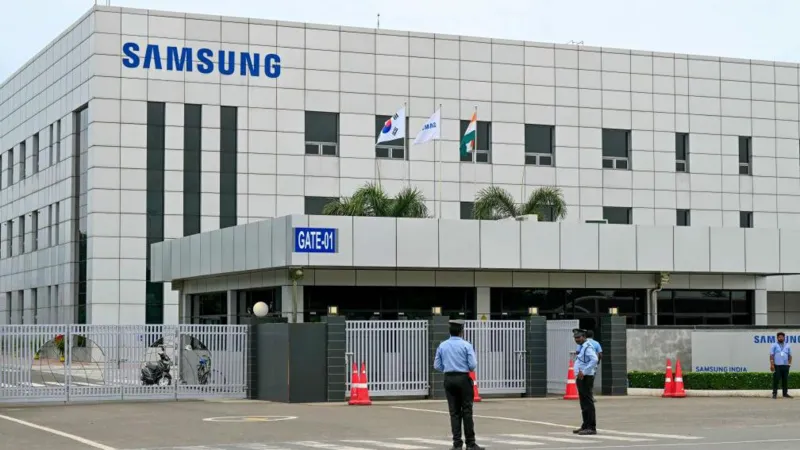Samsung India workers end strike after more than a month
Workers at Samsung Electronics' factory in the southern Indian state of Tamil Nadu have called off a labour strike that went on for more than a month.

Around 1,500 workers in Chennai city had participated in the strike to demand better pay, working facilities and recognition of a newly-formed union.
A labour activist who supported the workers told the BBC that while Samsung hadn't recognised the union yet, it had agreed to engage with the other demands.
The strike was one of the largest the South Korean technology giant had seen in recent years.
It also threatened to cast a shadow over Prime Minister Narendra Modi's bid to position India as a viable alternative to China for manufacturing activities.
On Wednesday, the Centre of Indian Trade Unions (Citu), a politically-backed national labour union which led the protests, announced the workers' decision to call off the strike after a meeting.
"During the meeting it was decided that the workers would return to their jobs on Thursday," E Muthukumar told the BBC.
He added that the issue of registration of the new union - called the Samsung India Labour Welfare Union (SILWU) - will be decided by a court.
"We have decided to call off the protest as the Samsung management has decided to engage with workers on all key demands like higher wages, medical insurance and better facilities. So those discussions will continue," he said.
On Tuesday, representatives of the protesting workers met with officials from the Tamil Nadu labour department.
After the meeting, the state's Minister for Industries TRB Rajaa said that the striking workers had decided to return to work immediately and that Samsung had agreed to "not to victimise the workers only for having participated in the strike".
He also said that the workers had agreed to cooperate with the management fully and that Samsung would file a written reply to the charter of demands filed by them.
Later, Samsung released a statement saying that it welcomed Citu's decision to call off the strike.
"We will not take action against workers who merely participated in the illegal strike. We are committed to work closely with our workers to make the Chennai factory a great place to work,” the statement said.
The workers had begun their protest on 9 September near the factory in Chennai city, which employs nearly 2,000 workers and is one of its two plants in India.
The factory produces home appliances, contributing about a third to the company's annual $12bn (£9bn) revenue in India.
One of the workers' key demands was for Samsung to recognise their union, as they said that only that could help them negotiate better wages and working hours with the management.
Akriti Bhatia, a labour rights activist, told the BBC that multinational companies which set up factories in India often don't follow Indian labour laws, which allow workers the right to association and collective bargaining.
These firms, she said, often side-step this by setting up internal unions, which are led by workers only on paper as the management continues to exert control over their decisions. They stridently oppose external, politically-backed unions.
A source in Samsung had told the BBC earlier that the organisation "fully supports unions but not ones backed by a third-party".
Earlier this year, hundreds of workers at a manufacturing plant of an Apple supplier in Tamil Nadu also went on a one-day strike, demanding recognition of their union.
-BBC







